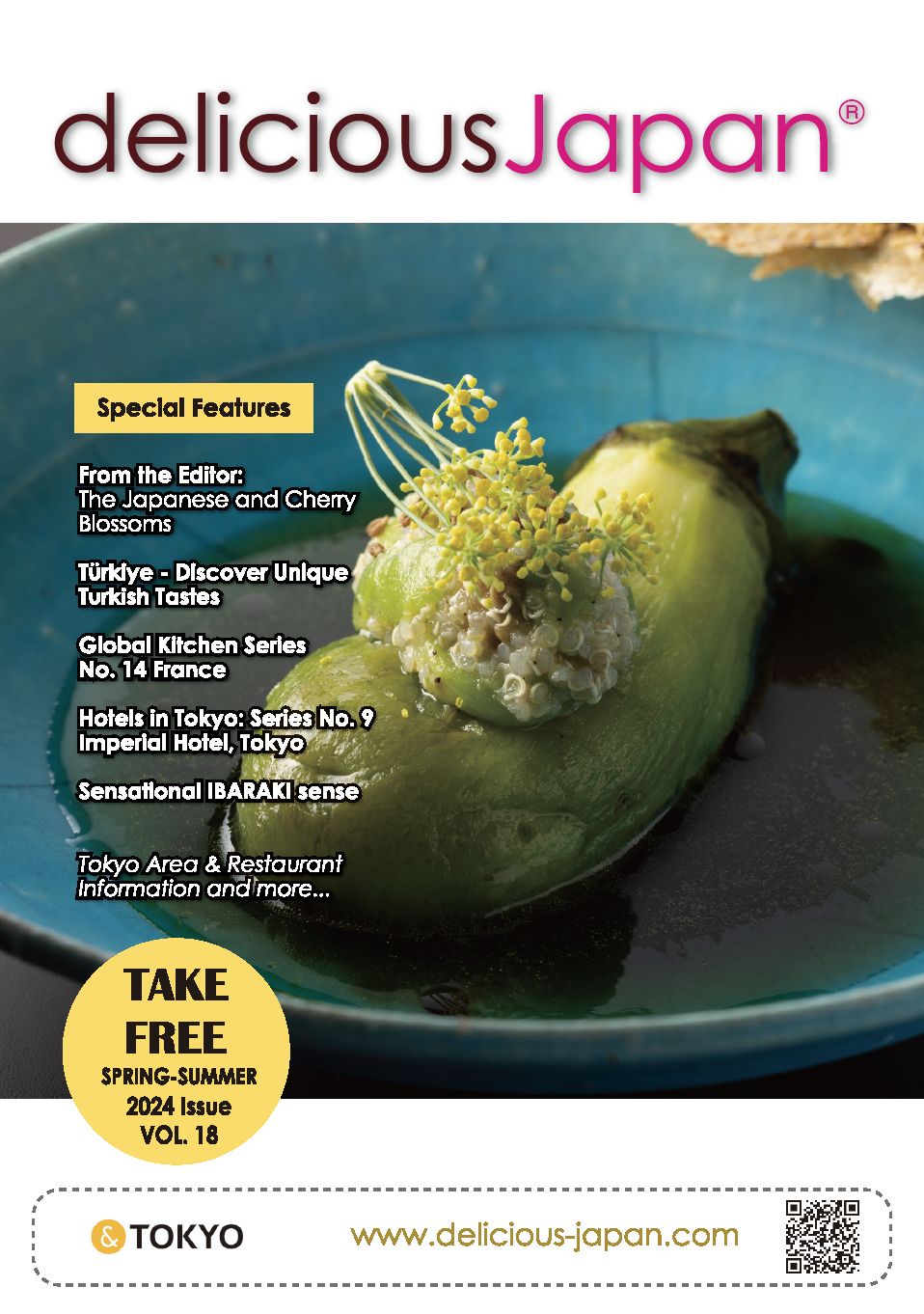
Your Access to Japan’s Import Market
Japan's food market is currently valued at approximately 80 trillion yen, displaying yearly fluctuations while maintaining a steady demand. Consumer expectations for safety and quality are particularly high. The market is expanding due to rising health awareness, a preference for convenient food options, and the needs of an aging population, with an increased focus on eldercare and food products designed for seniors. Furthermore, the food service industry and convenience stores have become significant contributors, strengthening Japan's food sector as a crucial and valuable market for domestic and international producers.
Before the largest food and beverage trade show in Asia, FOODEX JAPAN 2025, scheduled to take place at Tokyo Big Sight from March 11 to 14, we interviewed Mr. Kanta KUSABIRAKI, CEO of M-Cross Engineering. This company specializes in providing services for foreign businesses entering the Japanese market.
 Kanta KUSABIRAKI
Kanta KUSABIRAKIPresident, M-Cross Engineering Corporation
Japan’s vast food market, estimated at around 80 trillion yen, presents substantial opportunities for foreign businesses. This growth is fueled by rising health awareness and a growing demand for senior-oriented foods owing to an aging demographic. Japanese consumers prioritize quality and safety, and foreign companies with strong brand reputations can achieve substantial long-term growth. Furthermore, a market analysis reveals a strong affinity for foreign brands.
The appeal of the Japanese market lies not only in the presence of major retail chains but also in the ability to enter the market through smaller-scale stores or e-commerce. This allows for a more phased approach that aligns with specific business objectives. This approach enables foreign companies to avoid the risks of holding large inventories from the outset. Instead, they can start by testing marketing, observing consumer reactions, and optimizing pricing and marketing strategies accordingly.
Our company utilizes our warehouse in Gifu Prefecture to provide comprehensive support, including inventory management, sample distribution, and agency sales, ensuring a seamless market entry process. With the ongoing growth of e-commerce year after year, many opportunities exist to establish diverse sales channels.
Japan's market features a unique distribution system that requires a strategic adaptation approach. Additionally, Japanese consumers prioritize product quality and brand image, meaning that simply introducing successful foreign models is not enough; localization specifically tailored to the Japanese market is essential. Moreover, Japan has distinct business customs and complex distribution channels. For newcomers entering the market, especially in B2B sectors, establishing connections with key decision-makers may take considerable time, which presents a challenge. Navigating these nuances can be demanding. However, as mentioned earlier, Japan is strongly attracted to foreign brands. Therefore, the key to success will depend on how effectively you can enhance brand awareness to align with local market expectations.
Our company conducts test sales in small stores, pop-up events, and online markets to create a system for observing consumers' authentic reactions. You can gradually enter the market by refining flavors, packaging, and promotional strategies to align with consumer preferences. When needed, we suggest enhancements aimed at Japanese consumers' tastes, constructing a robust sales strategy while increasing brand value.
Our company offers a comprehensive suite of services for foreign businesses looking to enter the Japanese market, providing distribution support, marketing, sales, inventory management, and localization. We operate a dedicated warehouse in Gifu Prefecture, where we manage inventory and handle sample shipments for overseas companies, facilitating a swift market entry. Additionally, we plan to expand our showroom capabilities, allowing buyers and distributors to experience and assess products directly.
We also plan to open offices in major cities across Japan, fostering a more advantageous entry environment for other companies. This expansion will improve business opportunities while also increasing brand awareness and supporting channel development.
Moreover, product localization is essential for acceptance among Japanese consumers. For instance, customizing packaging design, ingredient labeling, and promotional strategies to cater to the Japanese market ensures smoother sales and increases consumer appeal. At our company, we provide strategic marketing support to help foreign businesses gradually build brand awareness and achieve sustainable sales, ensuring a successful long-term presence in the market.
Yes, that’s correct. We are planning to focus more on the showroom function moving forward. By leveraging our warehouse in Gifu Prefecture, we aim to reduce unnecessary costs associated with test marketing, exhibitions, and business negotiations, enabling a smoother market entry for companies from abroad. We plan to expand our presence to key cities across Japan, strengthening our logistics and sales support to offer even more comprehensive assistance to foreign companies.
What types of products do many foreign companies seek to export to Japan and promote?Due to the growing health consciousness, there is an increasing demand for organic, functional, and vegan/plant-based products in the Japanese market. Additionally, senior-targeted and care foods, in response to the aging society, are also gaining attention. Last year, our company received inquiries from over 15 new companies in these categories, and more businesses are exploring the potential of the Japanese market through test sales in small-scale stores and online platforms. We will continue actively utilizing test marketing and propose sales strategies tailored to Japanese consumers.
What tips or business customs should foreign companies be aware of in order to collaborate with Japanese businesses successfully?In the Japanese market, quality control and adherence to delivery deadlines are highly prioritized, so meticulous adjustments and precise communication are essential. Additionally, to gain consumer recognition, an appropriate localization strategy is necessary. For example, adapting packaging design, translating product descriptions, and adjusting to Japan-specific sales methods are crucial. Our company leverages its extensive experience in the Japanese market to support foreign businesses, ensuring they can smoothly advance their operations.
Could you share your vision for the future?Our vision is to build the optimal platform that integrates digital and physical elements, enabling foreign companies to succeed in the Japanese market. To achieve this, we are expanding our logistics infrastructure and actively incorporating the latest methods in online services and system development, providing more effective sales strategies. At the same time, we recognize that traditional marketing methods have deep roots in the Japanese market, and it is essential not to overlook them.
We will create a more reliable sales strategy by appropriately combining traditional methods such as in-store sampling, promotions at physical stores, and building relationships with trading companies and wholesalers. We aim to establish a system that maximizes the probability of success for foreign companies entering the Japanese market while ensuring that Japanese consumers smile joyfully when they encounter these products.
Profile of Kanta KUSABIRAKI
After graduating from university, he joined a major Japanese trading company in 2011, where he was engaged in import/export and triangular trade. In 2020, he began selling U.S.-made consumer goods for the Japanese market through M-Cross International Corporation, focusing on B2B and B2C sales. In addition to supporting U.S. companies entering the Japanese market, he assisted Japanese companies in expanding to the U.S. In 2024, he established M-Cross Engineering Co., Ltd., a specialized company focused on helping foreign businesses enter the Japanese market, leveraging unique strengths. He set up a warehouse in Gifu, located in the heart of Japan, where he continuously stocks goods from overseas. Alongside marketing and sales activities, the warehouse also serves as a sample dispatch facility and a showroom.





